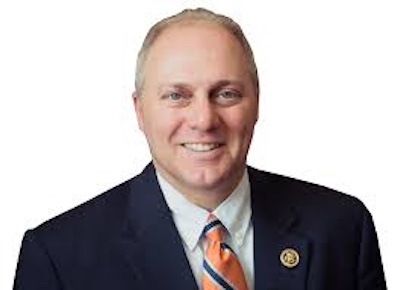Governor selects Stine, Tarver for new Fiscal Responsibility Program
Published 11:39 am Thursday, December 19, 2024

- Louisiana Sen. Jeremy Stine, District 27, and Rep. Phillip Tarver, District 36.
Two Lake Charles legislators have been named members of the state’s new Fiscal Responsibility Program, Sen. Jeremy Stine, District 27, and Rep. Phillip Tarver, District 36, are both business owners. Both are also members of the Legislative Republican Delegation that Stine chairs.
Gov. Jeff Landry signed the executive order last week to establish the new program that is supposed to streamline government operations, reduce wasteful spending and modernize state services.
“Louisiana’s future depends on our ability to eliminate waste and frustrating bureaucracy to create a more effective government and state where families and businesses want to stay and grow,” Stine said.
Trending
Tarver said that the need for such a team is the result of year after year of the state spending revenue that is not recurring on expenses that are.
He is looking at the task the same way as one might approach the task of buying a new business, with a review of how it’s doing, but at this point, Tarver doesn’t know how the process will work. He will report back when he knows more.
Center Square reported that the program “will evaluate state expenditures, contracts, staffing levels and services to identify cost-saving opportunities and improve service delivery.”
Six other legislators, three from the House and three from the Senate, will serve with Stine and Tarver. Steve Orlando, the businessman and philanthropist that chaired Landry’s transition team will head the group. The program will present findings by Dec. 31, 2025.
The governor said this is a natural progression in his history of fighting government waste.
“Throughout my time in the U.S. Congress, and as the Louisiana attorney general, I have prioritized finding ways to cut out fiscal waste and end government bureaucracy,” Landry said. “My time as governor is no different.”
Trending
A press release from the governor’s office states that as attorney general, Landry realized approximately $1 million in savings in his first year. As a member of the U.S. Congress, he returned over 10% percent of his office budget and asked for it to be used to pay down debt.





